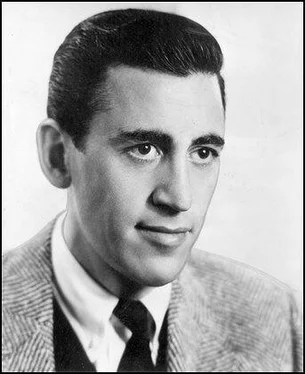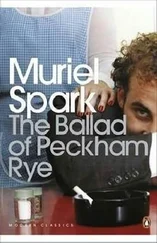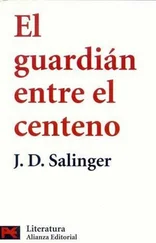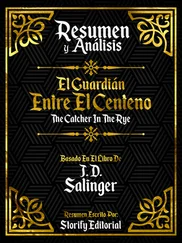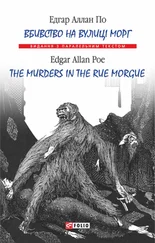Jerome Salinger - The Catcher in the Rye
Здесь есть возможность читать онлайн «Jerome Salinger - The Catcher in the Rye» весь текст электронной книги совершенно бесплатно (целиком полную версию без сокращений). В некоторых случаях можно слушать аудио, скачать через торрент в формате fb2 и присутствует краткое содержание. Жанр: Современная проза, на английском языке. Описание произведения, (предисловие) а так же отзывы посетителей доступны на портале библиотеки ЛибКат.
- Название:The Catcher in the Rye
- Автор:
- Жанр:
- Год:неизвестен
- ISBN:нет данных
- Рейтинг книги:3.63 / 5. Голосов: 8
-
Избранное:Добавить в избранное
- Отзывы:
-
Ваша оценка:
- 80
- 1
- 2
- 3
- 4
- 5
The Catcher in the Rye: краткое содержание, описание и аннотация
Предлагаем к чтению аннотацию, описание, краткое содержание или предисловие (зависит от того, что написал сам автор книги «The Catcher in the Rye»). Если вы не нашли необходимую информацию о книге — напишите в комментариях, мы постараемся отыскать её.
, Holden Caulfield has been synonymous with “cynical adolescent.” Holden narrates the story of a couple of days in his sixteen-year-old life, just after he’s been expelled from prep school, in a slang that sounds edgy even today and keeps this novel on banned book lists. It begins,
“If you really want to hear about it, the first thing you’ll probably want to know is where I was born and what my lousy childhood was like, and how my parents were occupied and all before they had me, and all that David Copperfield kind of crap, but I don’t feel like going into it, if you want to know the truth. In the first place, that stuff bores me, and in the second place, my parents would have about two hemorrhages apiece if I told anything pretty personal about them.”
His constant wry observations about what he encounters, from teachers to phonies (the two of course are not mutually exclusive) capture the essence of the eternal teenage experience of alienation.
The Catcher in the Rye — читать онлайн бесплатно полную книгу (весь текст) целиком
Ниже представлен текст книги, разбитый по страницам. Система сохранения места последней прочитанной страницы, позволяет с удобством читать онлайн бесплатно книгу «The Catcher in the Rye», без необходимости каждый раз заново искать на чём Вы остановились. Поставьте закладку, и сможете в любой момент перейти на страницу, на которой закончили чтение.
Интервал:
Закладка:
When I came out of the record store, I passed this drugstore, and I went in. I figured maybe I’d give old Jane a buzz and see if she was home for vacation yet. So I went in a phone booth and called her up. The only trouble was, her mother answered the phone, so I had to hang up. I didn’t feel like getting involved in a long conversation and all with her. I’m not crazy about talking to girls’ mothers on the phone anyway. I should’ve at least asked her if Jane was home yet, though. It wouldn’t have killed me. But I didn’t feel like it. You really have to be in the mood for that stuff.
I still had to get those damn theater tickets, so I bought a paper and looked up to see what shows were playing. On account of it was Sunday, there were only about three shows playing. So what I did was, I went over and bought two orchestra seats for I Know My Love. It was a benefit performance or something. I didn’t much want to see it, but I knew old Sally, the queen of the phonies, would start drooling all over the place when I told her I had tickets for that, because the Lunts were in it and all. She liked shows that are supposed to be very sophisticated and dry and all, with the Lunts and all. I don’t. I don’t like any shows very much, if you want to know the truth. They’re not as bad as movies, but they’re certainly nothing to rave about. In the first place, I hate actors. They never act like people. They just think they do. Some of the good ones do, in a very slight way, but not in a way that’s fun to watch. And if any actor’s really good, you can always tell he knows he’s good, and that spoils it. You take Sir Laurence Olivier, for example. I saw him in Hamlet. D.B. took Phoebe and I to see it last year. He treated us to lunch first, and then he took us. He’d already seen it, and the way he talked about it at lunch, I was anxious as hell to see it, too. But I didn’t enjoy it much. I just don’t see what’s so marvelous about Sir Laurence Olivier, that’s all. He has a terrific voice, and he’s a helluva handsome guy, and he’s very nice to watch when he’s walking or dueling or something, but he wasn’t at all the way D.B. said Hamlet was. He was too much like a goddam general, instead of a sad, screwed-up type guy. The best part in the whole picture was when old Ophelia’s brother—the one that gets in the duel with Hamlet at the very end—was going away and his father was giving him a lot of advice. While the father kept giving him a lot of advice, old Ophelia was sort of horsing around with her brother, taking his dagger out of the holster, and teasing him and all while he was trying to look interested in the bull his father was shooting. That was nice. I got a big bang out of that. But you don’t see that kind of stuff much. The only thing old Phoebe liked was when Hamlet patted this dog on the head. She thought that was funny and nice, and it was. What I’ll have to do is, I’ll have to read that play. The trouble with me is, I always have to read that stuff by myself. If an actor acts it out, I hardly listen. I keep worrying about whether he’s going to do something phony every minute.
After I got the tickets to the Lunts’ show, I took a cab up to the park. I should’ve taken a subway or something, because I was getting slightly low on dough, but I wanted to get off that damn Broadway as fast as I could.
It was lousy in the park. It wasn’t too cold, but the sun still wasn’t out, and there didn’t look like there was anything in the park except dog crap and globs of spit and cigar butts from old men, and the benches all looked like they’d be wet if you sat down on them. It made you depressed, and every once in a while, for no reason, you got goose flesh while you walked. It didn’t seem at all like Christmas was coming soon. It didn’t seem like anything was coming. But I kept walking over to the Mall anyway, because that’s where Phoebe usually goes when she’s in the park. She likes to skate near the bandstand. It’s funny. That’s the same place I used to like to skate when I was a kid.
When I got there, though, I didn’t see her around anywhere. There were a few kids around, skating and all, and two boys were playing Flys Up with a soft ball, but no Phoebe. I saw one kid about her age, though, sitting on a bench all by herself, tightening her skate. I thought maybe she might know Phoebe and could tell me where she was or something, so I went over and sat down next to her and asked her, “Do you know Phoebe Caulfield, by any chance?”
“Who?” she said. All she had on was jeans and about twenty sweaters. You could tell her mother made them for her, because they were lumpy as hell.
“Phoebe Caulfield. She lives on Seventy-first Street. She’s in the fourth grade, over at—”
“You know Phoebe?”
“Yeah, I’m her brother. You know where she is?”
“She’s in Miss Callon’s class, isn’t she?” the kid said.
“I don’t know. Yes, I think she is.”
“She’s prob’ly in the museum, then. We went last Saturday,” the kid said.
“Which museum?” I asked her.
She shrugged her shoulders, sort of. “I don’t know,” she said. “The museum.”
“I know, but the one where the pictures are, or the one where the Indians are?”
“The one where the Indians.”
“Thanks a lot,” I said. I got up and started to go, but then I suddenly remembered it was Sunday. “This is Sunday,” I told the kid.
She looked up at me. “Oh. Then she isn’t.”
She was having a helluva time tightening her skate. She didn’t have any gloves on or anything and her hands were all red and cold. I gave her a hand with it. Boy, I hadn’t had a skate key in my hand for years. It didn’t feel funny, though. You could put a skate key in my hand fifty years from now, in pitch dark, and I’d still know what it is. She thanked me and all when I had it tightened for her. She was a very nice, polite little kid. God, I love it when a kid’s nice and polite when you tighten their skate for them or something. Most kids are. They really are. I asked her if she’d care to have a hot chocolate or something with me, but she said no, thank you. She said she had to meet her friend. Kids always have to meet their friend. That kills me.
Even though it was Sunday and Phoebe wouldn’t be there with her class or anything, and even though it was so damp and lousy out, I walked all the way through the park over to the Museum of Natural History. I knew that was the museum the kid with the skate key meant. I knew that whole museum routine like a book. Phoebe went to the same school I went to when I was a kid, and we used to go there all the time. We had this teacher, Miss Aigletinger, that took us there damn near every Saturday. Sometimes we looked at the animals and sometimes we looked at the stuff the Indians had made in ancient times. Pottery and straw baskets and all stuff like that. I get very happy when I think about it. Even now. I remember after we looked at all the Indian stuff, usually we went to see some movie in this big auditorium. Columbus. They were always showing Columbus discovering America, having one helluva time getting old Ferdinand and Isabella to lend him the dough to buy ships with, and then the sailors mutinying on him and all. Nobody gave too much of a damn about old Columbus, but you always had a lot of candy and gum and stuff with you, and the inside of that auditorium had such a nice smell. It always smelled like it was raining outside, even if it wasn’t, and you were in the only nice, dry, cosy place in the world. I loved that damn museum. I remember you had to go through the Indian Room to get to the auditorium. It was a long, long room, and you were only supposed to whisper. The teacher would go first, then the class. You’d be two rows of kids, and you’d have a partner. Most of the time my partner was this girl named Gertrude Levine. She always wanted to hold your hand, and her hand was always sticky or sweaty or something. The floor was all stone, and if you had some marbles in your hand and you dropped them, they bounced like madmen all over the floor and made a helluva racket, and the teacher would hold up the class and go back and see what the hell was going on. She never got sore, though, Miss Aigletinger. Then you’d pass by this long, long Indian war canoe, about as long as three goddam Cadillacs in a row, with about twenty Indians in it, some of them paddling, some of them just standing around looking tough, and they all had war paint all over their faces. There was one very spooky guy in the back of the canoe, with a mask on. He was the witch doctor. He gave me the creeps, but I liked him anyway. Another thing, if you touched one of the paddles or anything while you were passing, one of the guards would say to you, “Don’t touch anything, children,” but he always said it in a nice voice, not like a goddam cop or anything. Then you’d pass by this big glass case, with Indians inside it rubbing sticks together to make a fire, and a squaw weaving a blanket. The squaw that was weaving the blanket was sort of bending over, and you could see her bosom and all. We all used to sneak a good look at it, even the girls, because they were only little kids and they didn’t have any more bosom than we did. Then, just before you went inside the auditorium, right near the doors, you passed this Eskimo. He was sitting over a hole in this icy lake, and he was fishing through it. He had about two fish right next to the hole, that he’d already caught. Boy, that museum was full of glass cases. There were even more upstairs, with deer inside them drinking at water holes, and birds flying south for the winter. The birds nearest you were all stuffed and hung up on wires, and the ones in back were just painted on the wall, but they all looked like they were really flying south, and if you bent your head down and sort of looked at them upside down, they looked in an even bigger hurry to fly south. The best thing, though, in that museum was that everything always stayed right where it was. Nobody’d move. You could go there a hundred thousand times, and that Eskimo would still be just finished catching those two fish, the birds would still be on their way south, the deers would still be drinking out of that water hole, with their pretty antlers and their pretty, skinny legs, and that squaw with the naked bosom would still be weaving that same blanket. Nobody’d be different. The only thing that would be different would be you. Not that you’d be so much older or anything. It wouldn’t be that, exactly. You’d just be different, that’s all. You’d have an overcoat on this time. Or the kid that was your partner in line the last time had got scarlet fever and you’d have a new partner. Or you’d have a substitute taking the class, instead of Miss Aigletinger. Or you’d heard your mother and father having a terrific fight in the bathroom. Or you’d just passed by one of those puddles in the street with gasoline rainbows in them. I mean you’d be different in some way—I can’t explain what I mean. And even if I could, I’m not sure I’d feel like it.
Читать дальшеИнтервал:
Закладка:
Похожие книги на «The Catcher in the Rye»
Представляем Вашему вниманию похожие книги на «The Catcher in the Rye» списком для выбора. Мы отобрали схожую по названию и смыслу литературу в надежде предоставить читателям больше вариантов отыскать новые, интересные, ещё непрочитанные произведения.
Обсуждение, отзывы о книге «The Catcher in the Rye» и просто собственные мнения читателей. Оставьте ваши комментарии, напишите, что Вы думаете о произведении, его смысле или главных героях. Укажите что конкретно понравилось, а что нет, и почему Вы так считаете.
